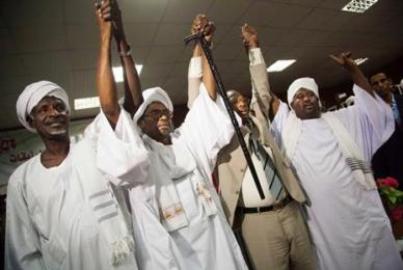Warring tribes in South Darfur agree to cease hostilities
September 8, 2015 (KHARTOUM) – Falata and Salamat tribes in South Darfur state have signed a cessation of hostilities document in prelude to arrive at a permanent agreement to end the fighting that has been ongoing since last March.

He pointed to the reconciliation initiative launched by the Habbaniya tribe to stop the tribal conflicts and restore ties among the various social components in the state.
Shamna said that Falata and Salamat tribes agreed to a complete cessation of hostilities until a reconciliation conference was held to end the conflict which claimed the lives of hundreds of people, noting they are keen to achieve peace between the two tribes.
It is worth mentioning that the conflict between Falata and Salamat has forced thousands of people to flee following the burning of their villages.
He added that fighting has stopped development projects in the area, stressing that military forces in the buffer zone between the two tribes is fully controlling the course of events.
The commissioner further pointed the forces continue to tackle any security breaches particularly regarding robberies and looting in order to avoid dragging the two tribes into fighting, saying they took precautionary measures to stop any potential state of lawlessness in the area.
Clashes between the two Salamat and Falata erupted last March following theft of cows in Rajaj area. At the time 67 people were killed. Also, seven people were killed in renewed clashes between the two tribes last month.
The central government admitted the failure of traditional reconciliation approach and decided stop these bloody tribal conflicts by bringing to justice the perpetrators of the attacks and through the massive deployment of troops.
(ST)
